I’m going to write about imposter syndrome today. I don’t believe I’ve written about this much for various reasons but the beast has reared its ugly head recently and I thought I’d overshare too many inner thoughts with you in the hopes they might make you feel better about your own lives. Like reality TV. My Western blot may have failed but at least I’m not spray tanned to the max yelling at my supposed best friend about all her affairs. But fair warning it’s all a bit waffly and there are way too many metaphors. No podcast recommendations and no papers for you to read. So if that’s what you’re in it for then tune out now.
I’ll start by saying that I do not have imposter syndrome. I had this argument with a former PhD student who claimed I did. I don’t. I am actually a fraud. I’ve written about luck here, I’ve written about timing and co-incidence. I’ve written about the benefits of aligning yourselves with the right people. All I have achieved is because of all of those things. Having an external locus of control like that is quite nice because, in theory, it makes it easier when things fail. Because whilst all those circumstances helped me succeed, they were also all the reasons I failed. Bad timing, wrong people, bad luck, etc. At least that’s the theory. The reality is when I fail it’s obviously because I’m appalling at everything and all it does is confirm the fact that I absolutely should not be here.
Much like my piece on bullying, academia is a place which is rife for imposter syndrome and for many of the same reasons. It’s a competitive environment with no clear structure or framework for guaranteeing or rewarding or defining success.
So when you are seeing colleagues succeed who you know are, on paper, less qualified than you then it makes everything worse. When you are turned down for a job you have all the qualifications for because of the all the unspoken stuff (read: you didn’t have enough money or you’re not chums with the right people) then it makes everything worse. When you don’t get a grant to do a project but see someone else get funding for the same kind of thing then it makes everything worse. The voice in your head just says ‘well obviously it’s you that’s bad’.
Because I don’t think I can just whine at you for 10 minutes I’ll drop in some very brief science here about what imposter syndrome actually is. In 1978, in the journal of Psychotherapy Theory, Research and Practice, Clance and Imes published a paper with the title “The Imposter Phenomenon in High Achieving Women: Dynamics and Therapeutic Intervention“. They interviewed 150 women, many of whom had PhDs and found that ‘these women find innumerable means of negating any external evidence that contradicts their belief that they are, in reality, unintelligent‘. Clance went on to describe the imposter cycle, which is worth looking up if you have a moment – Sakulku and Alexander made an excellent one in 2011. It’s full of phrases like ‘perceived fraudulence’ and ‘discounting positive feedback’ and shows how these thoughts can just cause an internal cycle of misery.
And I absolutely did not suffer this as a PhD or early post-doc. It crept in the longer I hung around and it’s becoming almost crippling as I age. As a PhD student I just tottered along. Resourceful, was what someone called me the other day. I learned to make experiments work by gluing together whatever we had to hand. I learned to haggle with reps and get good deals. I learned to squeeze the most out of every experiment. I learned to write quickly and well. I learned to manage up and manage down. I kept busy and that helped a lot.
The grant writing and job applications and my particular choice of university absolutely do not help. I am surrounded by geniuses. Or genii or whatever the plural is. People who are constantly spinning things out and writing patents. I had a meeting with someone who is unfortunately both brilliant and lovely the other day who was writing a forty-eight-page section of an application for twenty-three million pounds. Twenty-three million. My next grant application, after the ones I shall tell you about shortly, is going to be for about three thousand.

A survey conducted by the Nature Early Career Researcher Supplement found that nearly 50% of early-career researchers experience imposter syndrome. Many reported that it negatively affected their mental health, productivity, and motivation to apply for promotions or pursue new career opportunities.
The latest crisis of confidence came this afternoon. I wrote a grant with a friend that went in in September. Fifty pages long, acceptable quality. Again, fundable science if it lands with the right people. But that’s not guaranteed so what I’m doing now is turning it around and sending it to another funder. Tweaking the focus, adjusting the tone. Same science, different focus. I started at 6.45 and when I stopped at about 2.45 the grant tracker said 69% complete. Not bad for a day’s work but it didn’t feel like work. Not in a lovely, sunny ‘oh I love my job so much that it doesn’t feel like work’ way. In a ‘I feel like I’m taking dictation from my own brain’ kind of way.
Someone once described this, and I have definitely mentioned it before, as taking the tickets. You just have to keep taking the tickets until you win. But the issue with that is that is that you often feel like you’re taking tickets, not earning money. We’re getting a bit metaphor heavy here so I’ll try and clarify. For both of these grants I knew what I wanted to achieve and it was an expansion of the last grant I wrote. So I didn’t need to do a lot of in depth reading about the subject, I didn’t need to sit and think for ages about new and shiny things I could do. All I did with this one was copy paste from the back of my brain. No clever thinking was involved.
And that, in my opinion, doesn’t take any particular skill. I’m not being imaginative or creative any more. I’m just learning over and over again how exactly to write a grant that makes everyone happy. ‘Ah!’ I hear you cry ‘That’s why you’re not getting funded, you’re not being creative enough!’. But I’ve had too much bad experience pitching new and shiny to people. Even though some of the funders say they want ‘high risk high reward’ when it all comes back plastered with ‘this probably won’t work’ then it’s clear they do not want that. Grant writing and grant achieving is maybe 5% skill (most of which is thrown at making it readable and within the word limit) and 95% luck.
I loved the point during my PhD when I was writing the discussion for my thesis, when I would spend half a day reading through semi-related literature, go down a rabbit-hole on pubmed and end up writing one perfect sentence where I brought together two seemingly disparate ideas. I felt like a cross between an explorer and some kind of artisanal craftsman. Like if Ranulph Feinnes made intricate and complicated clocks. Now I feel a little more like a flat-pack furniture designer from the suburbs. And yes, I am aware of how over privileged that makes me sound.
I still love getting the old Feinnes goggles out occasionally. I love sitting with other scientists and chatting about what they’re doing, thinking about whether there’s anything we do that overlaps, figuring out how we could share expertise or knowledge or techniques. Finding holes in the current landscape that we could fill together. Occasionally I even get enthused enough to write grants with these people. But then they don’t get funded and I take the goggles off and go back to my flat-pack, the inner voice chiding me for daring to try.
And the voice is absolutely insidious. It infects everything you do. I tried to do some stuff in the lab the other day. Something I’ve been doing for years. Something that I give to undergrads to do because it’s so easy. And it didn’t work. And I’m pretty sure it was because I did something wrong but along the chain of experimental detail, I’m still not sure what it was and now I have to start again. And during my PhD this would have been fine, I had loads of time and freedom but now I cannot afford for experiments to fail. Both financially and metaphorically. And all the while the voice is telling me I shouldn’t bother trying it again because ‘it didn’t work this time the way you’ve always done it so why would it work next time, you’re clearly just bad at science now you sit at a desk all day.’
‘You can’t do both’ a friend recently told me. You can’t do lab science and write grants and papers. And she’s absolutely right because all trying to do both does is make you feel like failure at whichever one you are currently doing or not doing. Sometimes this push and pull moves beyond feeling like a fraud to being terrified of failure and at those times you get the fun experience of sitting at your desk having opened a document you’re supposed to be working on having done nothing with it but stare for half an hour.
But the trouble is that trying brings this crushing sense of inadequacy which means that you also can’t leave. You have absolutely no idea what you are good at because nobody has ever told you. They’re so busy competing with you they never pause to say ‘hey, by the way, you’re a great writer’ or ‘hey, you have really good management skills’. This means you have no idea how to job hunt, what jobs to apply for and no confidence to apply when you do see a job you could almost certainly do. In a fit of rash madness I applied for a job where part of the title was ‘head of department’ at a non-academic institution. I thought it was insane but someone with no skin in the academic game encouraged me to do it. They offered me an interview. They subsequently found someone who was actually qualified so I didn’t get the job but they gave me such nice feedback that I didn’t mind. It turns out maybe people outside your ivory tower do want your skills.
But that doesn’t stop the inner monologue telling you otherwise. You tried once, you failed, don’t try again. You can’t go anywhere else because who would want you? You clearly can’t write or stain for microglia so frankly, what use are you to the world?
The inherent competitive nature of academia means that you don’t feel valued by your institution, you feel like you’re constantly just clawing your way back up the cliff to stay alive.
And the more you claw, the more you wonder whether your arms are up to it, the more you wonder whether it would just be easier to let go and meet the sea head on, the more you wonder what is actually at the top of the cliff and will any of the mental gymnastics required to drag yourself up, ultimately be worth it?
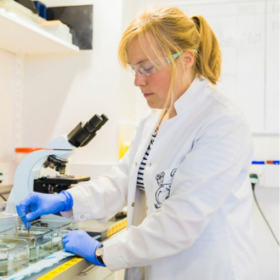
Dr Yvonne Couch
Author
Dr Yvonne Couch is an Alzheimer’s Research UK Fellow at the University of Oxford. Yvonne studies the role of extracellular vesicles and their role in changing the function of the vasculature after stroke, aiming to discover why the prevalence of dementia after stroke is three times higher than the average. It is her passion for problem solving and love of science that drives her, in advancing our knowledge of disease. Yvonne shares her opinions, talks about science and explores different careers topics in her monthly blogs – she does a great job of narrating too.

 Print This Post
Print This Post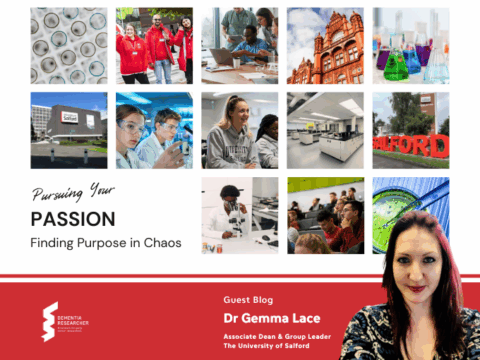
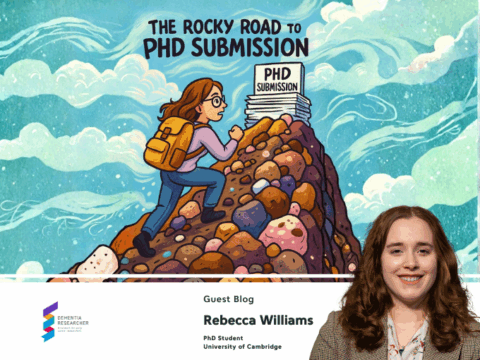

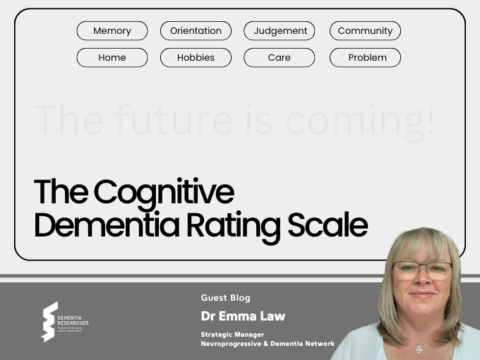
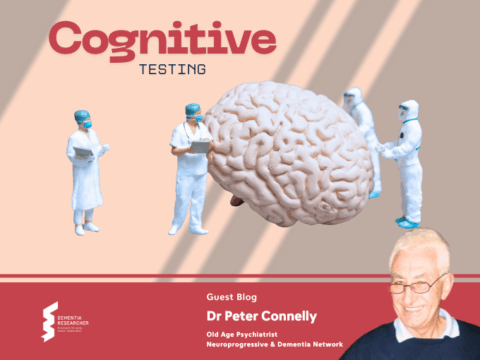
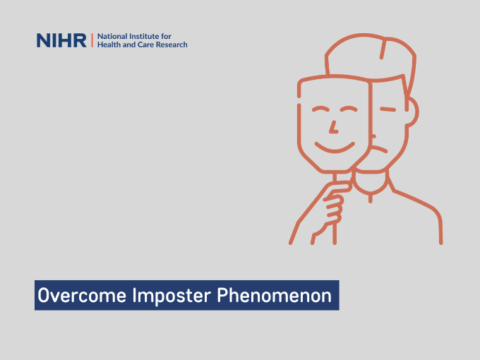
Thanks Yvone :). I found this very inpiring as you achived what you wanted. I think every early career researcher should read this post.
I have read this at just the right time as I have been having a crisis of confidence at the moment. Very listen-able (if that’s a word). Thank you for your honesty !